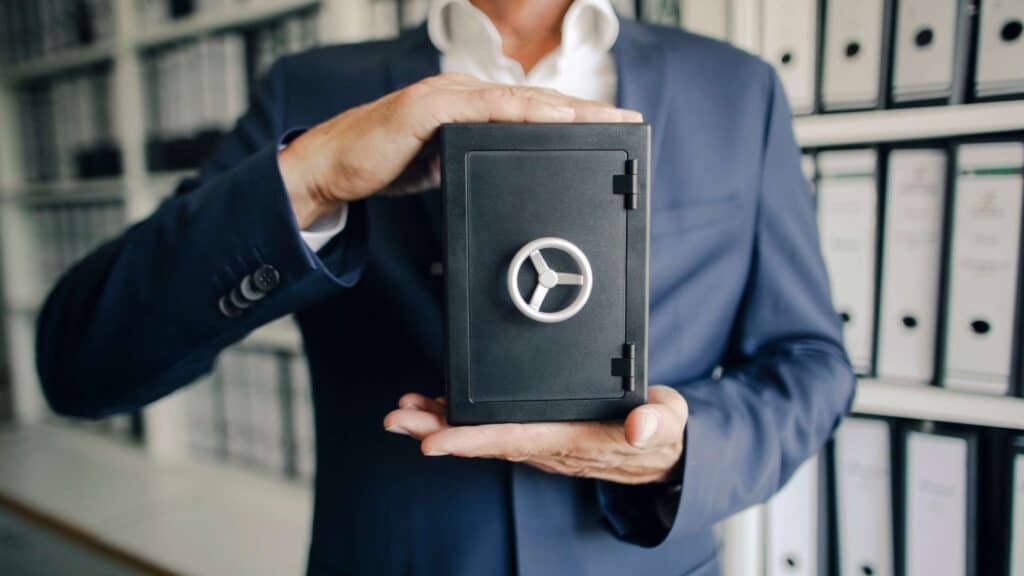Table of Contents
Regarding financial preparedness, having a stash of emergency cash at home is often considered a brilliant idea. Knowing how much emergency cash to keep at home can provide peace of mind, whether due to unexpected events like natural disasters, economic uncertainty, or unforeseen personal emergencies. But how much is enough, and what factors should influence your decision?
How much emergency cash should I keep at home? This blog will explore why this is essential, how to determine the right amount for your household, and the risks and benefits of doing so.
How Much Emergency Cash Should I Keep at Home
The emergency cash you should keep at home depends on your circumstances. Still, a general recommendation is that a small amount, not exceeding a few hundred dollars in small denominations, can be kept at home, personal finance experts suggest. Let’s explore why this is important.
Why Keeping Emergency Cash at Home is Important
Today, most people rely heavily on electronic forms of payment—credit cards, debit cards, and online banking services. However, there are circumstances where you might not have access to digital payment methods. Power outages, internet disruptions, natural disasters, or even a temporary banking system failure can leave you without access to your regular payment channels. During such times, emergency cash can be a lifesaver.
Having cash on hand can provide you with the ability to make purchases, pay for essential services, or even help others in need. It’s not just about convenience but ensuring a financial safety net during emergencies, especially when electronic payments are unavailable or impractical.
Assessing Your Daily Cash Needs
Evaluating your daily cash needs is essential before deciding how much emergency cash to keep at home. This will give you a baseline for determining how much you should have available in an emergency. Start by asking yourself these questions:
- How much do you spend on essentials daily? Think about things like transportation, groceries, or emergencies.
- Do you frequently use cash for purchases? While many people rely on credit and debit cards, others still prefer cash for certain transactions (e.g., small purchases, tips, local vendors, etc.).
- How often do you visit an ATM or bank? If you rarely go to the bank, consider a larger reserve.
If you have a family, you’ll need to multiply this by the number of people in your household to ensure everyone’s needs are covered. A family of four, for example, may require more cash than a single individual.
How Much Cash is Enough?
There isn’t a one-size-fits-all answer when determining how much cash is enough. Several factors come into play, such as your family’s size, geographic location, and lifestyle. However, a common rule of thumb is to keep enough cash on hand to cover at least three to seven days of essential expenses.
- Single individual: You may want to keep between $200 and $500 in emergency cash.
- Family of four: A typical emergency cash stash for a family might range from $1,000 to $2,000.
For example, if you have daily expenses of $50 (for groceries, transportation, and other essentials), having $500 to $700 would likely be sufficient for a week’s worth of needs. In more severe situations, you might need more, especially if travel or lodging becomes necessary.
Factors to Consider When Deciding Your Cash Amount
- Geographic Location: Where you live can influence your cash needs. For example, those in disaster-prone areas such as hurricane or tornado zones may need more cash due to the likelihood of power outages or store closures.
- Number of People in Your Household: A larger family or household will naturally require more emergency funds than an individual.
- Availability of Local ATMs or Banks: If you live in a rural area with limited access to ATMs or banking institutions, having more emergency cash may be necessary. On the other hand, if you live in a city, it may be easier to access cash in an emergency.
- Personal Habits: If you typically pay for smaller purchases with cash or often encounter situations where digital payments aren’t accepted, you may need to keep more cash.
- Type of Emergency: Consider the types of emergencies you might face. A local emergency (like a power outage) will have different cash needs than a nationwide economic crisis or a long-term disruption.

Safe Storage Options for Your Emergency Cash
Once you’ve decided how much emergency cash to keep at home, the next question is: Where should you store it? The key is to balance accessibility with security. Here are some options:
- Fireproof Safe: A fireproof safe is an excellent option for protecting cash from fire, water damage, or theft. Make sure the safe is both secure and easily accessible when needed.
- Hidden Containers: If you don’t want to invest in a safe, you can use hidden containers or creative hiding spots, such as behind a bookshelf, in a false drawer bottom, or inside household items like a can of coffee.
- Emergency Cash Box: An emergency cash box is a portable and secure way to store cash and other important documents. It can be kept in a safe place at home or taken with you if you need to evacuate.
To minimize the risk of theft, make sure that only trusted individuals know where the cash is stored and avoid telling too many people.
Risks of Keeping Too Much Cash at Home
While it may seem comforting to have a large sum of cash on hand, there are several risks involved:
- Theft: Keeping cash at home makes it vulnerable to theft, especially if it’s not securely stored. Burglars often target homes with visible signs of wealth, and a stash of cash can make you a target.
- Loss or Damage: Cash can be easily lost or damaged, especially if stored improperly. Floods, fires, or other natural disasters can render your emergency fund useless.
- Inflation: Cash doesn’t grow on its own. If your emergency savings sit in a drawer for too long, inflation can erode their value over time. Consider a mix of cash and other assets like gold or low-risk investments to mitigate this risk.
- Over-Reliance on Physical Cash: If you keep too much cash, you might not invest in other savings or emergency resources, such as insurance, which can provide more long-term protection.
How Beem Can Help Protect Your Cash
At Beem, we understand that keeping cash at home requires a balance of accessibility and security. We offer various digital solutions to ensure that your financial safety is covered from all angles. Whether it’s through direct deposit options, emergency savings accounts, or even preloaded payment cards, Beem can help streamline how you access and manage emergency funds. Visit our site to learn more about how we can help you manage your finances and keep your emergency savings safe.
Conclusion
While keeping emergency cash at home is important for preparedness, it’s equally crucial to know how much is enough and how to store it securely. By assessing your personal needs, considering external factors like geography, and taking proactive measures to store your cash securely, you can ensure that you’re ready for any unexpected situation.
Beem offers tools to automate savings, track goals, and access funds easily. Beem’s BFF Budget Planner™ enables users to spend, save, plan, and protect their money like an expert with on-point financial insights and recommendations. By managing your emergency fund through Beem, you gain greater control over your finances, ensuring you’re prepared for any challenges that come your way. Download the app here.
FAQs for How Much Emergency Cash Should I Keep at Home
How much emergency cash should I keep at home?
A good rule of thumb is to keep enough cash to cover three to seven days of essential expenses. For a single person, $200–$500 may be sufficient, while families may need $1,000 or more.
What are the risks of keeping cash at home?
The risks include theft, loss, or damage from natural disasters, inflation, and over-reliance on physical cash.
How can I determine the right amount of cash to keep at home?
When deciding how much cash to store, consider your daily expenses, household size, geographic location, and potential emergencies.
Is it safe to keep large amounts of cash at home?
It can be risky to keep large amounts of cash at home. Ensure it is stored securely in a fireproof safe, and consider diversifying your emergency funds.
What are the best ways to store emergency cash at home?
Use a secure fireproof safe, hidden containers, or a portable emergency cash box to protect your funds.















































